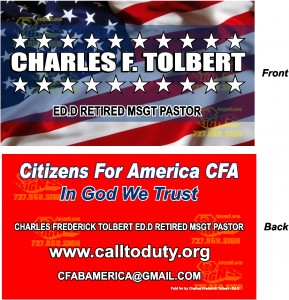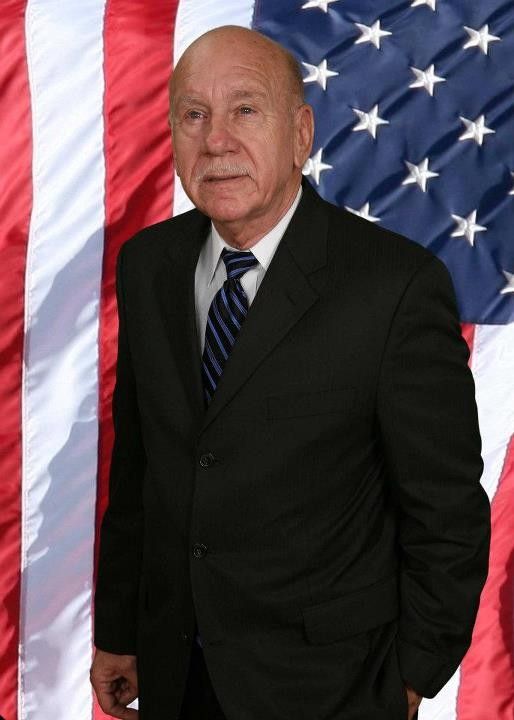Free trade agreement (FPP) is in violation of the Commerce Clause
Article I, section 8),
A three-part test is used to determine this implied condition to regulate interstate commerce: (1) that the law is not intended to discriminate against another state, (2) that the substance of the law must not be one that requires national or uniform regulation, and (3) that the interests of the state outweigh those of the federal government’s right to regulate interstate commerce on the matter at issue. See also interstate commerce.
https://ustr.gov/trade-agreements/free-trade-agreements
Currently Florida violates three major United States constitutional issues:
Charles Frederick Tolbert EdD
Candidate For U. S. Senate Florida 2016
Www.writeinTolbert.com
cfabamerica@gmail.com
561-398-9025
Retired MSGT
Pastor
Www.calltoduty.org
Immigration belongs to the States
Www.cfabamerica.com
Commerce clause, in the U.S. Constitution (Article I, section 8), the authorization of the Congress “To regulate Commerce with foreign Nations, and among the several States, and with Indian Tribes.” It is the legal foundation of much of the U.S. government’s regulatory authority.
In the matter of regulating commerce with foreign nations, the supremacy as well as the exclusivity of the federal government is generally understood. From time to time attempts by state or local authorities to deal in foreign policy matters considered exclusively the province of the federal government have been invariably struck down by the courts. The states do have some limited powers to tax foreign commerce. But, essentially, it may be said that, in dealing with foreign states, the federal government is the sole agent of all the people of the United States.
While it is also generally held that the states may almost exclusively regulate intrastate commerce, the fact is that Congress does have the power to so regulate in certain situations. For example, in the case of U.S. v. Darby Lumber (1941), although only some of the goods manufactured by Darby were to be shipped through interstate commerce, the Supreme Court held that the Fair Labor Standards Act could be applied to the intrastate production of those goods, because that production was part of the mainstream of the activity that would inevitably affect the interstate status of the goods.
This was a departure from earlier instances in which the court had been more likely to invest the states with implied powers of regulation that were not to be impeded by the federal government; for example, in Cooley v. Board of Wardens of the Port of Philadelphia (1852), the state of Pennsylvania held that it had the right, under the act of 1789, to regulate matters concerning pilots on its waterways, including the port of Philadelphia. The court agreed that Congress had never intended to deprive the states of all power to regulate commerce, and where no such federal legislation exists, the states retain this power until Congress, at a later date, enacts further legislation to restrict them.
Where Congress is silent (Southern Pacific Company v. Arizona, 1945) the court found that “in the absence of conflicting legislation by Congress . . . (there is) a residuum of powers in the states to make laws governing matters of local concern. . . .” A three-part test is used to determine this implied condition to regulate interstate commerce: (1) that the law is not intended to discriminate against another state, (2) that the substance of the law must not be one that requires national or uniform regulation, and (3) that the interests of the state outweigh those of the federal government’s right to regulate interstate commerce on the matter at issue. See also interstate commerce.
Charles Frederick Tolbert EdD
Retired MSGT
Pastor
Was a pCandidate for United States Senator Florida 2016
Cfabafp
Www.cfabamerica.com






